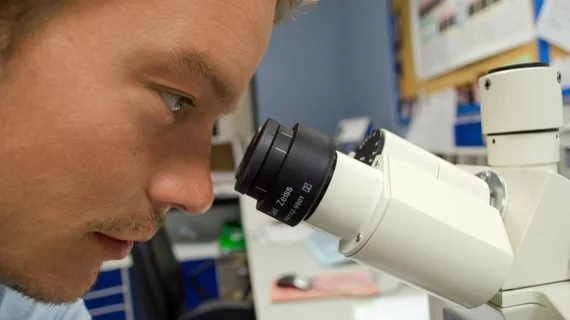How flu vaccines may help limit COVID-19 among CVD patients
What we learn about seasonal influenza today can help inform what we learn about COVID-19 tomorrow, according to a new analysis published in the Journal of the American College of Cardiology.
The flu and COVID-19 are both associated with an increased risk of cardiovascular disease and cardiovascular complications, the authors noted, and these similarities have added a new level of importance to influenza research that was already underway before the pandemic.
“Although COVID-19 and other respiratory virus infections are associated with acute myocardial infarction and other cardiovascular events, influenza has the best evidence of a safe vaccine option for cardiovascular risk reduction to date,” corresponding author Jacob A. Udell, MD, a cardiologist at Women’s College Hospital in Toronto, said in a statement. “Several observational and small, randomized studies have suggested that influenza vaccination may serve as a preventative measure against adverse cardiovascular outcomes.”
Udell et al. focused on three specific cardiovascular outcome trials (CVOTs) that could end up making a significant impact on COVID-related care:
The IVVE (Influenza Vaccine to Prevent Adverse Vascular Events) trial, for instance, is focused on how different vaccine formulations impact patients from Asia, the Middle East and Africa.
Researchers behind the IAMI (Influenza Vaccination After Myocardial Infarction) trial, meanwhile, are examining how standard flu vaccines impact both STEMI and non-STEMI patients who undergo coronary angiography.
Finally, the INVESTED (INfluenza Vaccine to Effectively Stop cardioThoracic Events and Decompensated heart failure) trial is a first-of-its-kind study tracking two different vaccines over the course of several flu seasons in patients with a history of cardiovascular events.
These CVOTs, Udell noted, “have an opportunity to contribute further to our understanding of the underlying comorbidities in these patients that may be driving morbidity and mortality associated with COVID-19 infection.”
“These cohorts may also be an opportunity to explore novel infection prevention therapies beyond influenza vaccination in patients that have already volunteered to participate in a respiratory virus vaccine cardiovascular outcome study,” he said. “While developing new vaccines, we will also definitively learn soon whether influenza vaccination is an effective, low-cost, widely available therapy that reduces cardiovascular risk, which may further help prevent fatal and nonfatal cardiovascular complications of COVID-19.”
The full state-of-the-art review in the Journal of the American College of Cardiology is available here.

